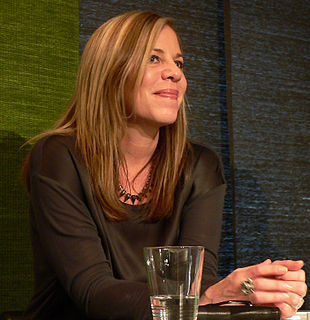A Quote by Rob Roberge
You can't hide behind the guise of fiction. No matter how autobiographical a fictional scene is, you can always tell the reader - in protecting yourself - that you made it up.
Related Quotes
If in physics there's something you don't understand, you can always hide behind the uncharted depths of nature. You can always blame God. You didn't make it so complex yourself. But if your program doesn't work, there is no one to hide behind. You cannot hide behind an obstinate nature. If it doesn't work, you've messed up.
What writers of fantasy, science fiction, and much historical fiction do for a living is different from what writers of so-called literary or other kinds of fiction do. The name of the game in F/SF/HF is creating fictional worlds and then telling particular stories set in those worlds. If you're doing it right, then the reader, coming to the end of the story, will say, "Hey, wait a minute, there are so many other stories that could be told in this universe!" And that's how we get the sprawling, coherent fictional universes that fandom is all about.
When every new football season starts, we get all excited about the Browns. But no matter how bad they do, no matter how much they say they're rebuilding, they always have the support of that town behind them. No matter what, Cleveland is always behind the Browns, and we always root for them. One of these days, it's going to pay off!
Autobiographical writings, essays, interviews, various other things... All the non-fiction prose I wanted to keep, that was the idea behind this collected volume, which came out about few years ago. I didn't think of Winter Journal, for example, as an autobiography, or a memoir. What it is is a literary work, composed of autobiographical fragments, but trying to attain, I hope, the effect of music.
The most difficult part of writing a book is not devising a plot which will captivate the reader. It's not developing characters the reader will have strong feelings for or against. It is not finding a setting which will take the reader to a place he or she as never been. It is not the research, whether in fiction or non-fiction. The most difficult task facing a writer is to find the voice in which to tell the story.
































